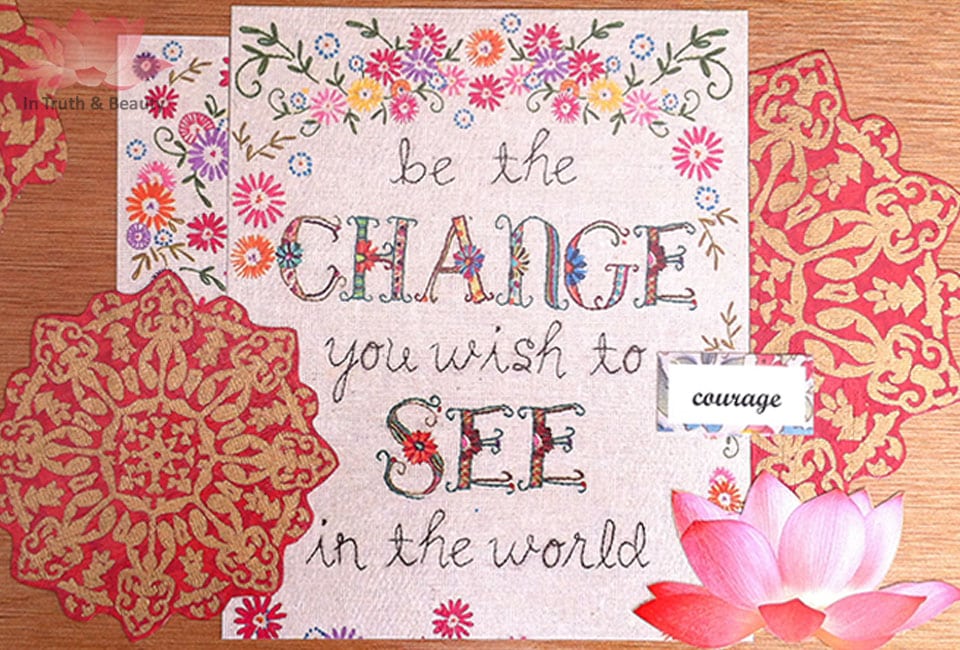
“All progress takes place outside the comfort zone.”
~Michael John Bobak
Last week I met my new San Diego State University students for their first day of internship. This is my fourth year being a field instructor for Master of Social Work interns and I love having the opportunity to nurture and mentor new social workers. To begin their field instruction, I always share one of the therapeutic models I have been using for over twenty years called Motivational Interviewing.
This brilliant and empowering model was created by William R. Miller and Stephen Rollnick and is now considered one of the evidence based therapies used by social workers, counselors and therapists of all kinds.
At the core of Motivational Interviewing is the recognition that ambivalence is a normal part of the change process and that true motivation for change must come from within and not be imposed by others.
Ambivalence is the state of having mixed or contradictory feelings or ideas about something or someone. A common experience of ambivalence is being really excited about a new opportunity, but also feeling scared about the unknown.
As a result, exploring our ambivalence is fundamental in the process of creating real change in our lives. Unfortunately, we often do not identify and resolve our conflicted feelings, beliefs and thoughts and then cannot figure out why we are not able to sustain our motivation to change.
To see if this is true in your own life, try this exercise:
- Think about an area you are interested in making a change in your life.
- Identify the feelings you have about the change.
- Do you recognize any ambivalence you feel around the change?
- Create a list of pros and cons for making the change and a list of pros and cons for not changing.
Giving yourself the opportunity to explore and acknowledge your ambivalence is critical to resolving it and empowering yourself to take inspired action in the change process. When we do not take the time to resolve our ambivalence before committing to the change, we often relapse back into old behaviors.
“Arguments for or against change already reside within the ambivalent person.” William R. Miller and Stephen Rollnick
We tend to be much more motivated to change after we have resolved our ambivalence, so nurture yourself by creating space in your life to explore your ambivalence. Once you identify your conflicting feelings, choose to respond to yourself with compassion and kindness. Recognizing the various emotions you are experiencing about a change helps you be more understanding and nurturing toward yourself in the process. Once our ambivalence is resolved, we are much more successful in creating healthy, nurturing and supportive habits in our lives.
As Zig Ziglar reminds us, “People often say that motivation doesn’t last. Well neither does bathing – that’s why we recommend it daily.”
May you nurture yourself through the change process by acknowledging and resolving your ambivalence and may you continue to nurture peace in the world from the inside out!

Sending you so much peace, love and gratitude,

Kelley Grimes, M.S.W.
Counselor, Author & Speaker

Sign up to receive daily reminders with our mobile app!




Hi Kelley, I love this! I write about change often and even wrote a book on it and also know sometimes our ego will give us every reason to stay exactly where we are. Motivation is so very important as is knowing we are worthy of that change and loving ourselves enough to hold that vision even if we take a perceived step backward. It is all a part of the dance and the more motivation you have the more you will be willing to receive that change with open arms! Lovely article – thank you! Sending Love, Jenny
I love your insight that the more motivation we have the more willing we are to receive the change with open arms! Understanding ambivalence and the role it plays is so empowering because it gives us more choices! Thank you so much for your comment Jenny!
Yes Kelley Daily is crucial to change. With that come consistency and that also allows us to grown and change. So important. I know if I miss my daily journaling I can be off centre all day
Journaling is such a helpful way to resolve ambivalence because it gives us space to explore and understand it. Thank you so much for your comment Suzie!
This is a very useful way of working with something that is at the core of people’s struggle with change. Right to the point. Thanks for sharing this Kelley!
Ambivalence is the key for sure when we are struggling with change and finding ways to explore and resolve ambivalence is critical. Thank you so much for your kind comment!
Thank you for sharing this Kelley! What a great exercise to help someone become clear and reconciled about the changes they seek.
Thank you so much Crystal! So glad you found the exercise useful and for your lovely comment!
Very interesting post, Kelley! I love how you educate readers as you gently nurture their inner growth. Thanks for all you do!
What a lovely thing to write Sheila! Thank you so much for your kind comment!
Great article Kelly. Zig Ziglar’s quote has me smiling…to funny and so true! The process of change is ever present and we are constantly shifting our perspective – isn’t it wonderful? Life is truly an adventure. 🙂
Life is truly an adventure Debra and so having tools to negotiate change is critical. Thank you so much for your comment Debra!
Thanks for the great tips! xoxo
You are so welcome Natasha! Thanks for your comment!
Thanks for sharing this powerful tool… I can definitely see how ambivalence unchecked can keep us from moving forward. xoxo
So glad you find motivational interviewing useful – it is one of the best tools I have found to support others in creating lasting change. So grateful for your comment Ginny!
Hi Kelley, Sounds like a good start to the month. I love the quotes – and know what you mean about motivation. Happy continuation.
So glad you enjoyed the quotes and thank you for your comment!
When I recognize that I am being ambivalent, I know that I have work to do!
So insightful Barb! Yes we must resolve our ambivalence before we can make sustainable change. Thank you so much for sharing your wisdom!